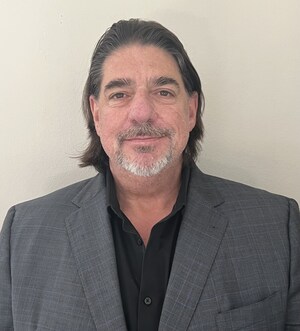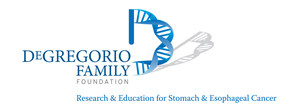Strides Made in Grant Awarded to Develop Genetically Engineered Stem Cell Products to Fight Gastroesophageal Cancer
NEW YORK, July 19, 2023 /PRNewswire/ -- The DeGregorio Family Foundation with support from the Torrey Coast Foundation Gastro Esophageal Investigator Network Initiative (GEMINI) has awarded $300,000 to Saar Gill, MD, PhD, of the University of Pennsylvania, to reward the progress he has made on his grant within less than a year. This is in addition to the $250,000 awarded last November. He is making great strides in his objective to improve the effectiveness of immunotherapy in gastroesophageal cancer by using the tools of genetic engineering. With the help of AI, he is modifying human blood-forming stem cells to produce highly specialized cancer-eating cells called Chimeric Antigen Receptor (CAR) macrophages. This means that they could be injected into solid tumors.
"While Chimeric Antigen Receptor T (CAR-T) cells have received FDA approvals for hematologic malignancies, their track record in solid tumors is disappointing," notes Dr. Gill. "We reasoned that genetically engineered macrophages may be better suited to treat solid tumors since these cells are the major immune component in the tumor microenvironment (TME)."
Macrophages are normally produced from the bone marrow as monocytes, which travel around the bloodstream and lodge at sites of infection, inflammation and cancer. There, monocytes mature to become macrophages. The normal roles of macrophages include 1) to detect, engulf and destroy harmful organisms and 2) to serve as the body's garbage disposal system by engulfing and breaking down old, faulty or dying cells.
This project brings together two technological innovations that were made in Dr. Gill's lab and improves on both of them at the same time. They previously made CAR macrophages from blood monocytes and showed that they can be made to eat cancer cells in a targeted manner, but the resultant CAR macrophages have a limited lifespan. By implanting a CAR in stem cells that give rise to monocytes and subsequently macrophages, Dr. Gill is hoping to develop a lifelong supply of cancer-eating cells for the treatment of upper gastrointestinal and other malignances.
"This grant will allow me to develop a high-risk yet potentially high-reward cancer treatment paradigm," said Dr. Gill. "This project combines two disparate innovations made in my lab in the last few years to make a new and hopefully synergistic therapeutic platform. There are relatively few funding bodies that have the foresight and courage to invest in such out-of-the-box concepts, and I look forward to repaying the Foundation's trust in me."
In 2020, gastric and esophageal cancers combined killed over 1.3 million people worldwide. Patients continue to face poor prognoses following gastric and esophageal cancer diagnoses due to their chemo-resistant behavior and ability to metastasize.
"Dr. Gill's work presents the possibility of great advancement in the treatment and ability to personalize gastroesophageal cancer therapy," concluded Lynn DeGregorio, President and Founder of the DeGregorio Family Foundation.
The DeGregorio Family Foundation, founded in 2006 after a 10th member of the DeGregorio family died of stomach cancer, has raised more than $8 million to fund innovative research focused on curing gastric and esophageal cancers. It is the only foundation funding research grants for both of these cancers.
SOURCE DeGregorio Family Foundation

WANT YOUR COMPANY'S NEWS FEATURED ON PRNEWSWIRE.COM?
Newsrooms &
Influencers
Digital Media
Outlets
Journalists
Opted In






Share this article